The Picturesque Neighbourhood Of Ana Poli
By Helen Grubner. Filed in Uncategorized |Thursday, 30 June 2022… Before beginning today’s walk up to Ana Poli, I had first to visit a Vodafone store to Top Up my phone. That done, I headed for the Atatürk Museum, birthplace in 1881 of Mustafa Kemal Atatürk, much loved and respected founder of modern Turkey. 🇹🇷 I knew I was almost there when I noticed a number of police near the Turkish Consulate… doing very little, other than drinking coffee.
To gain entry to the three floor dwelling and courtyard, painted it’s original pink colour, you must ring the bell and get permission to enter. The large heavy door will be opened, you sign in and entry is free. Having spent a total of 3 months in Turkey 2019/20 and understanding how much Atatürk means to the Turkish people, I found my visit today very moving.
With the temperature soaring to around 35°C, the walk up to the Tower of Trigoniou was no mean feat. Built at the end of the 15th century, it is the Byzantine city walls most famous tower and today Mt Olympus could be seen in the distance. Entry costs E6, or E3 if you are from the EU and the same ticket will get you into the Heptapyrgion fortress.
Situated on the north eastern corner of the acropolis of Thessaloniki, the Heptapyrgion has towered over the city for more than 1,000 years. In the late 19th century it was converted into a prison which remained open until 1989. Viewing those tiny cells today… not a nice feeling.
Ana Poli was one of the only historic neighbourhoods to survive the Great Fire of 1917. Today I made my way slowly, down through it’s narrow winding streets lined with traditional houses… now relieved to be back in my air conditioned room. Tomorrow at 08.15 hours, I take a train to Litochoro.
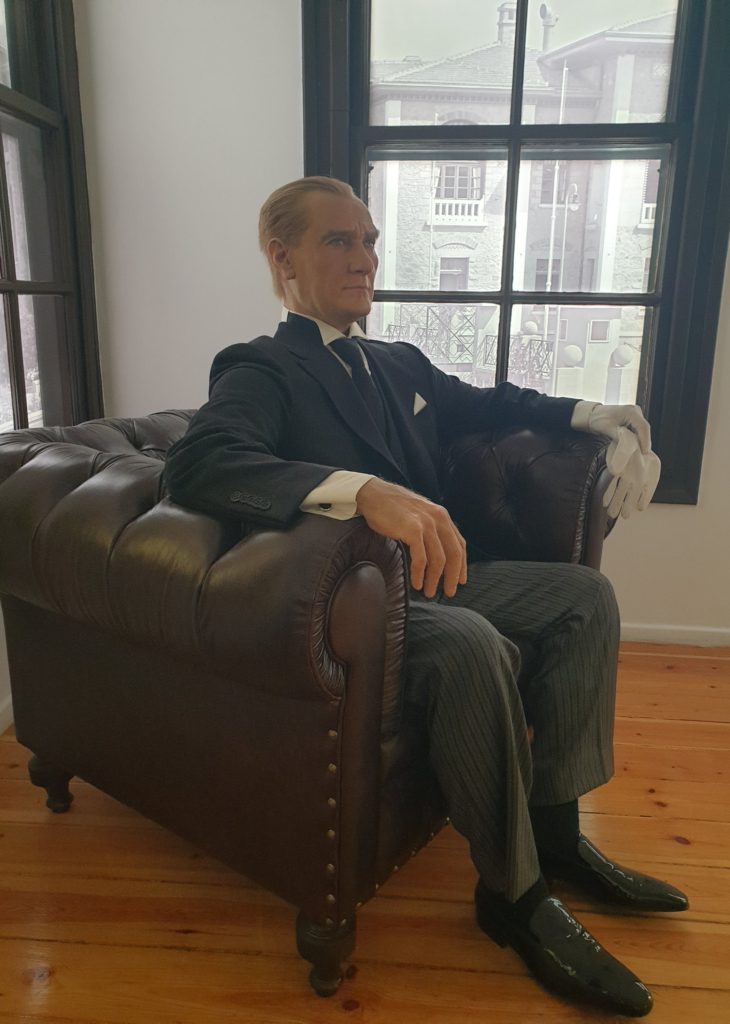
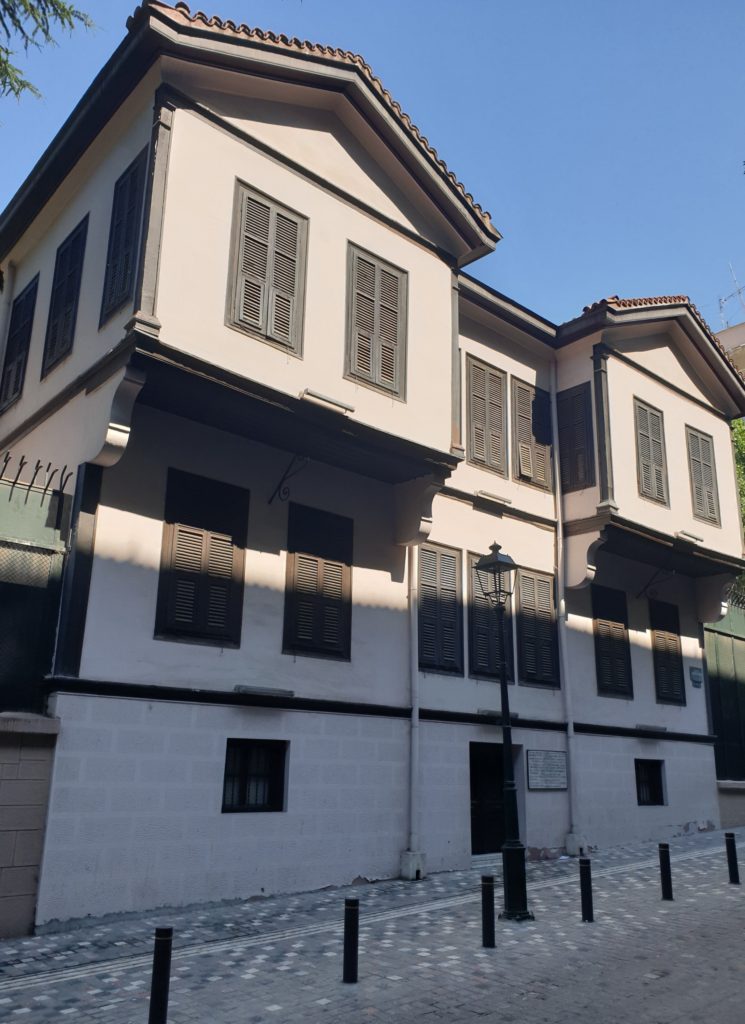
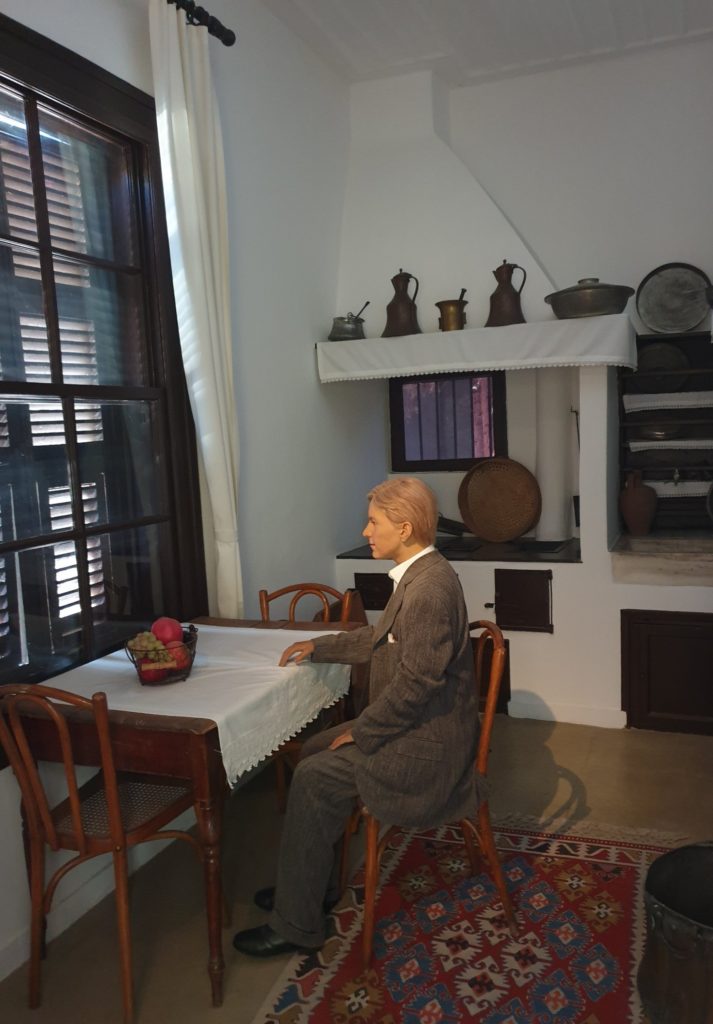
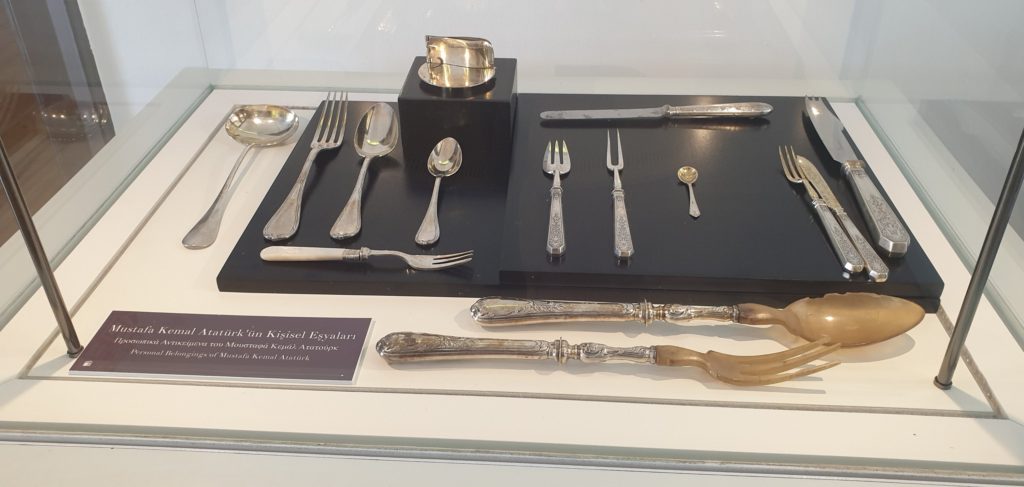
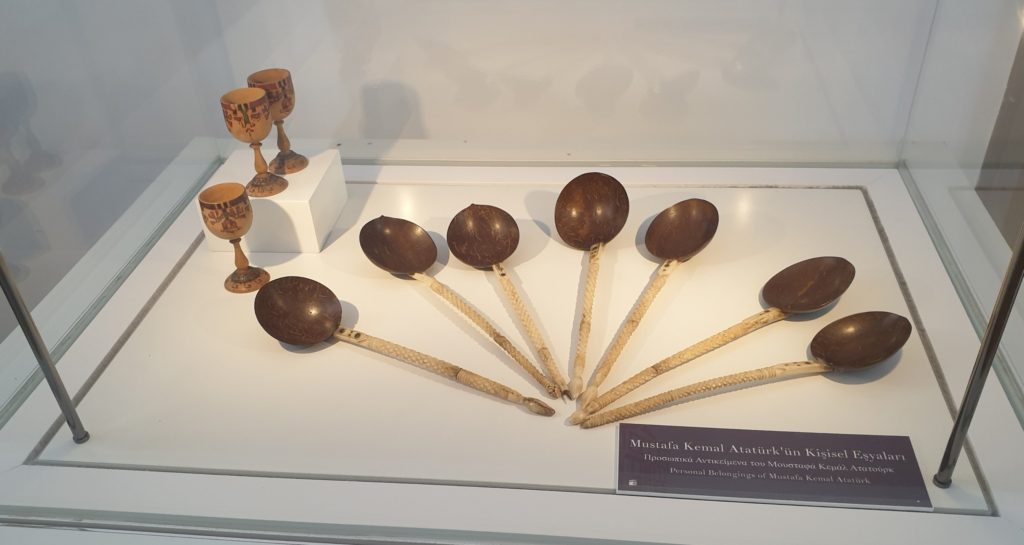
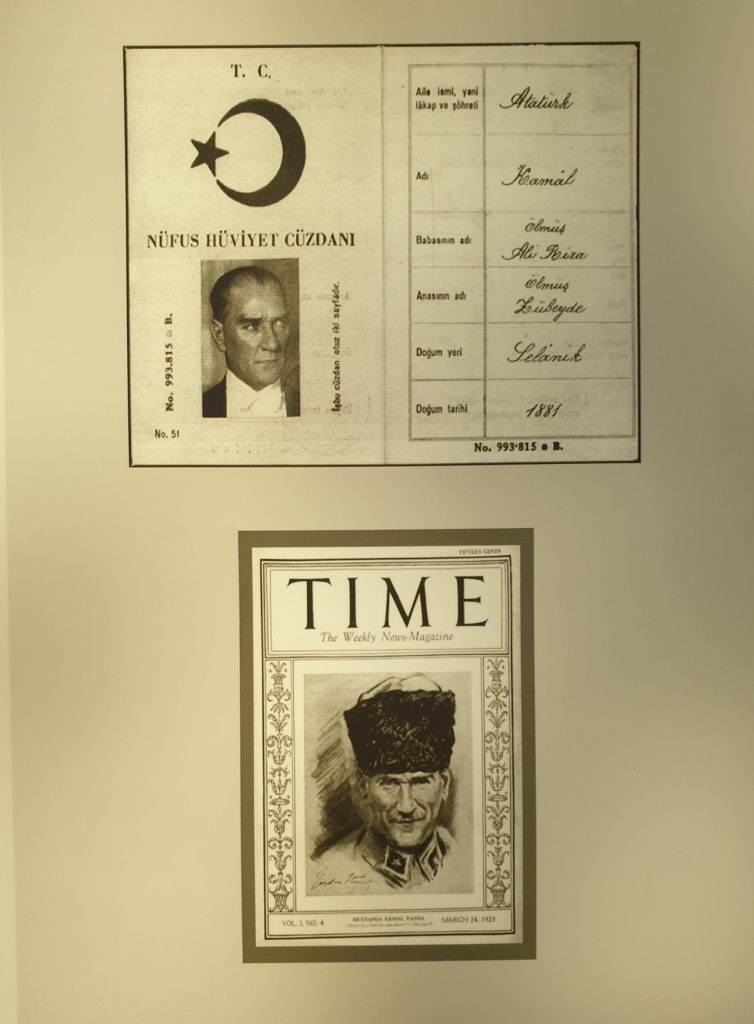
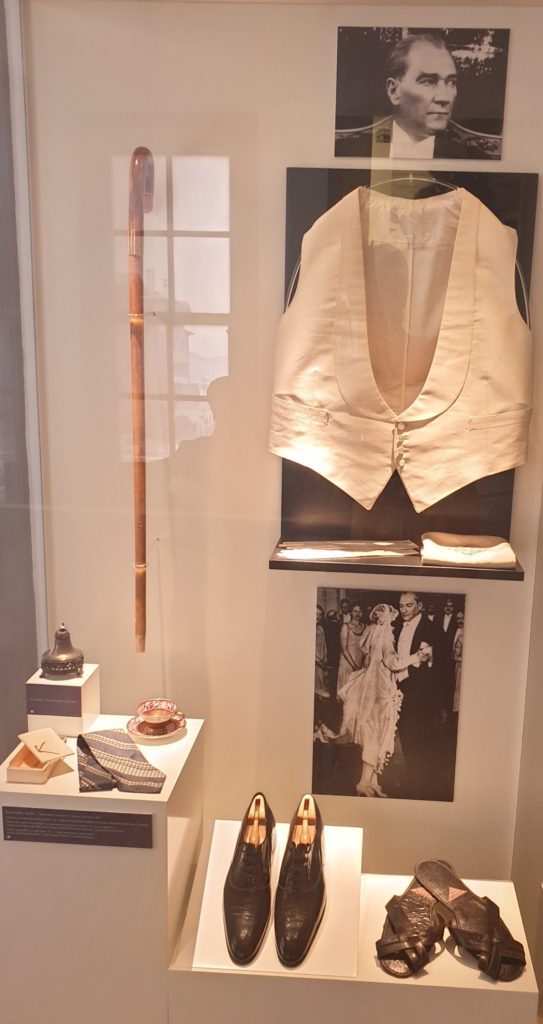
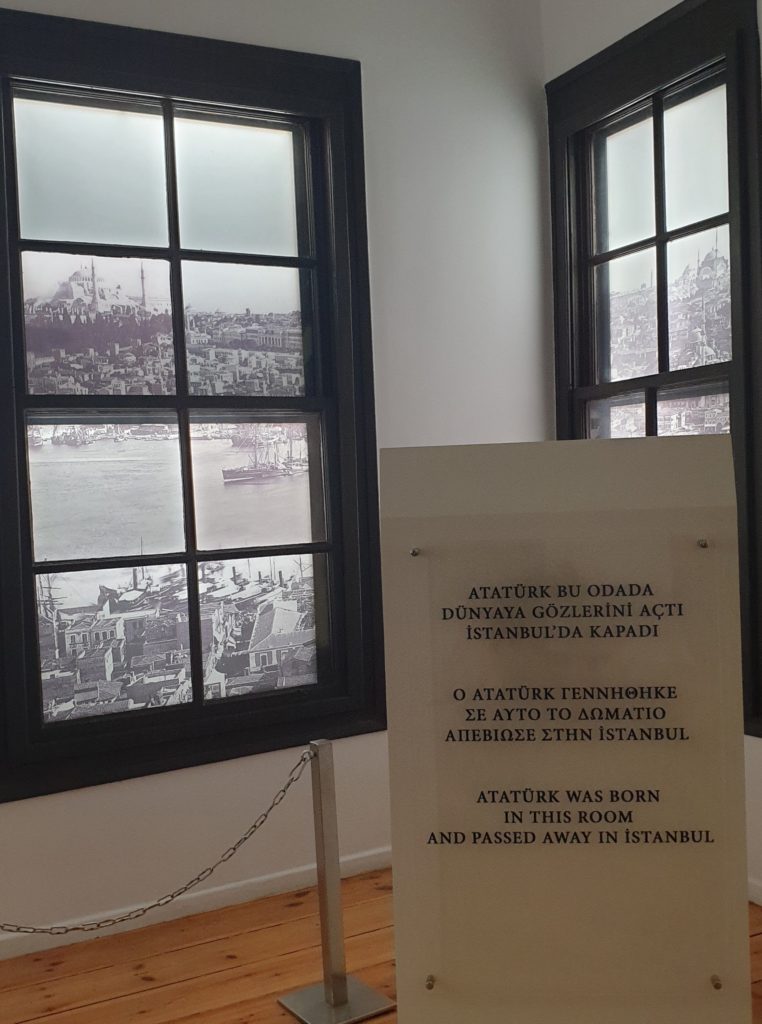
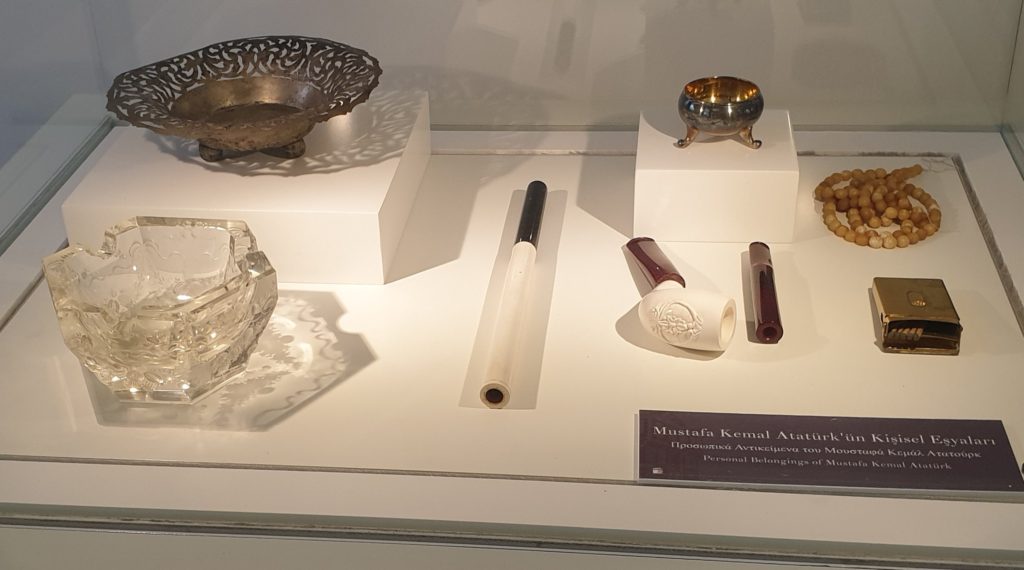
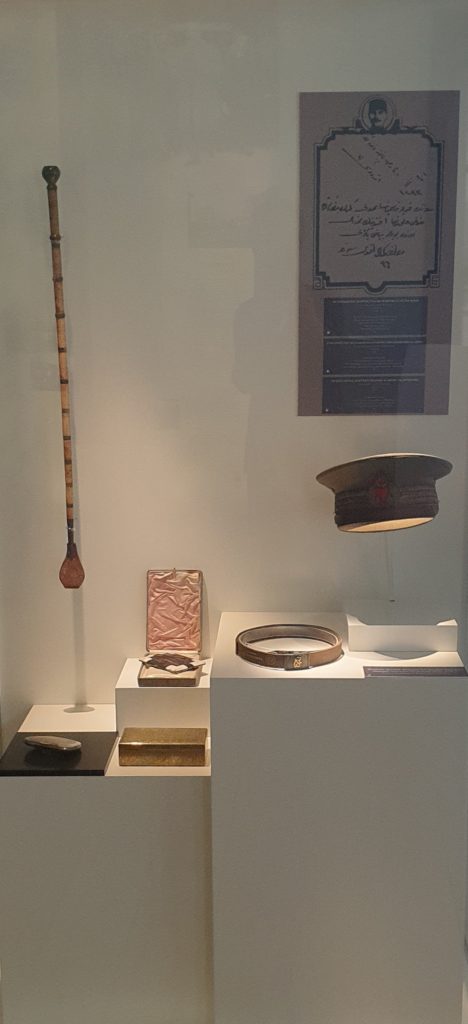
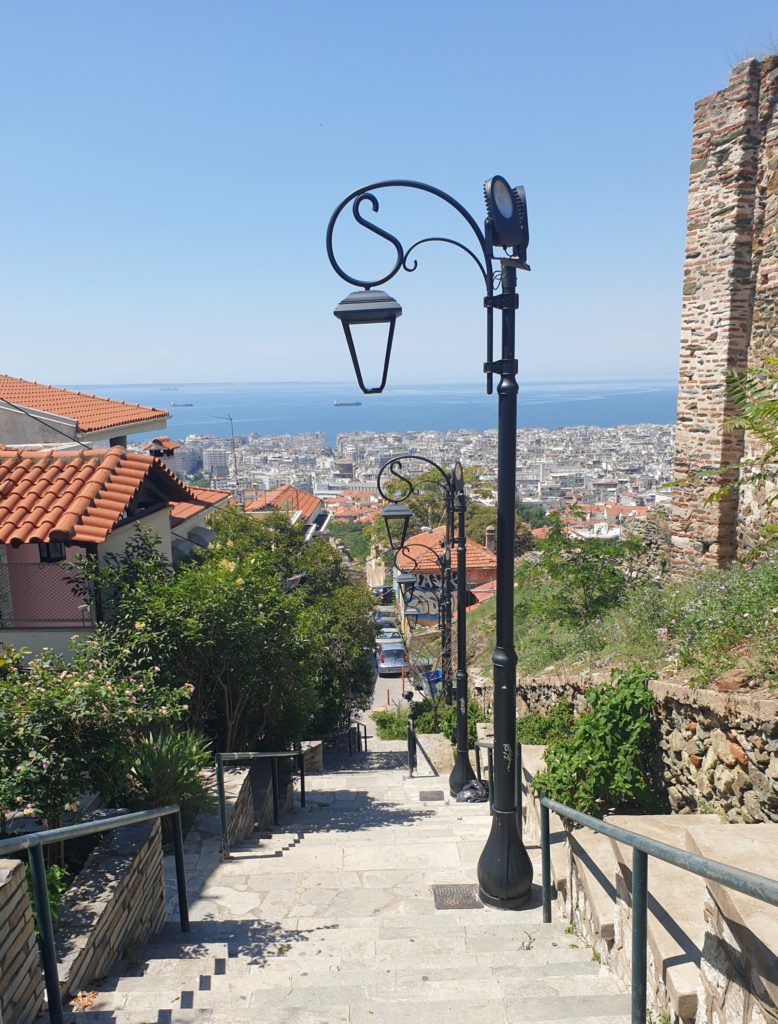
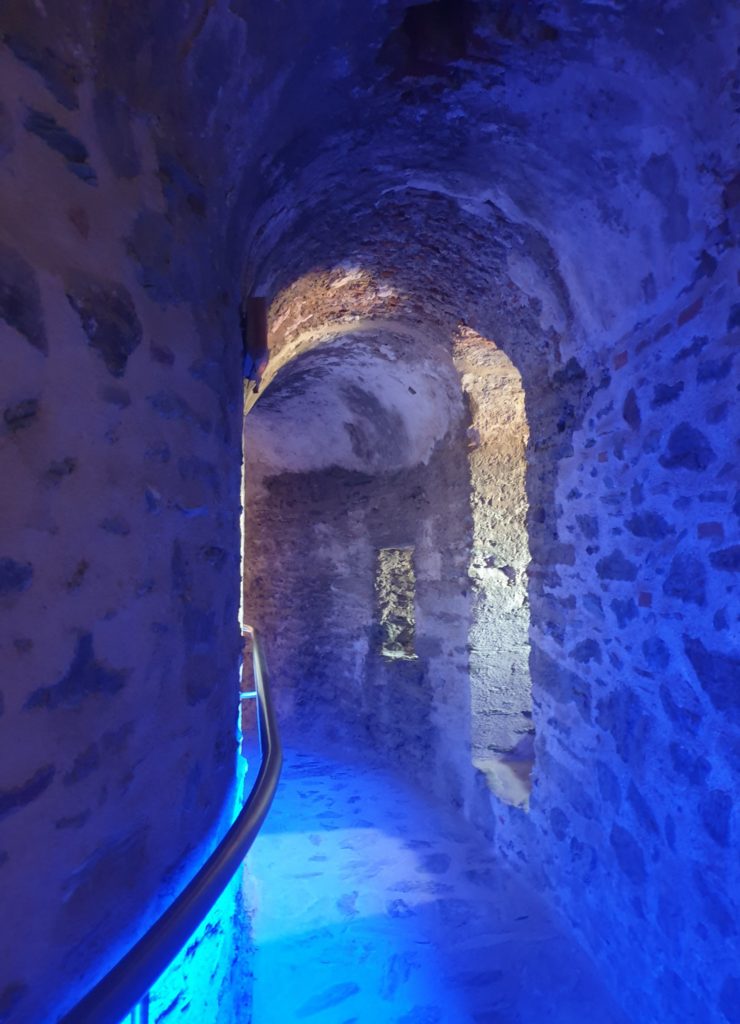
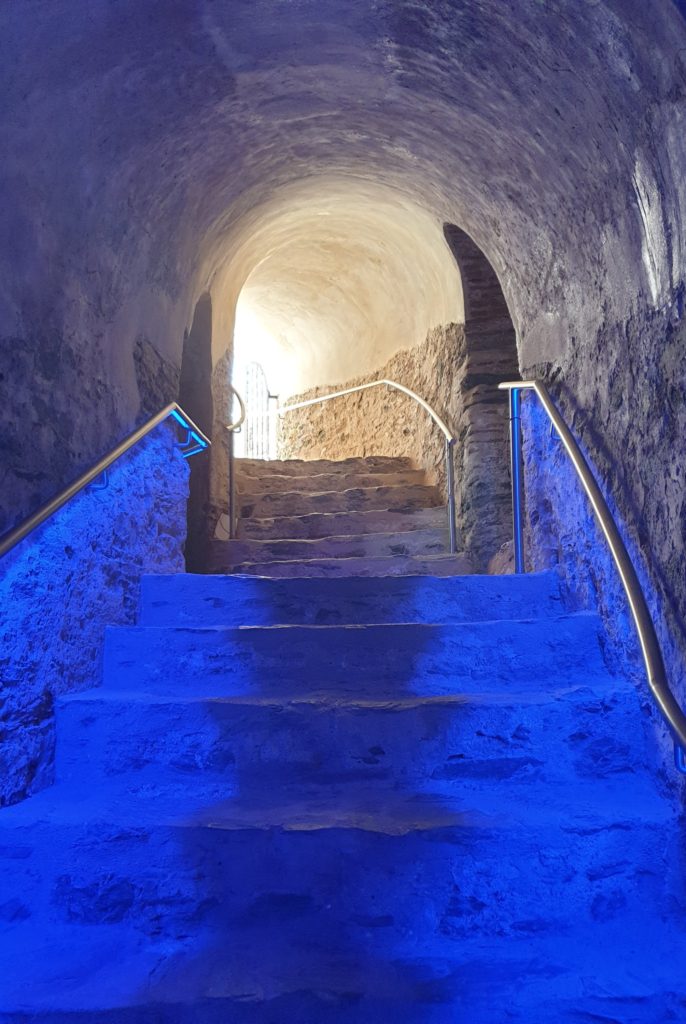
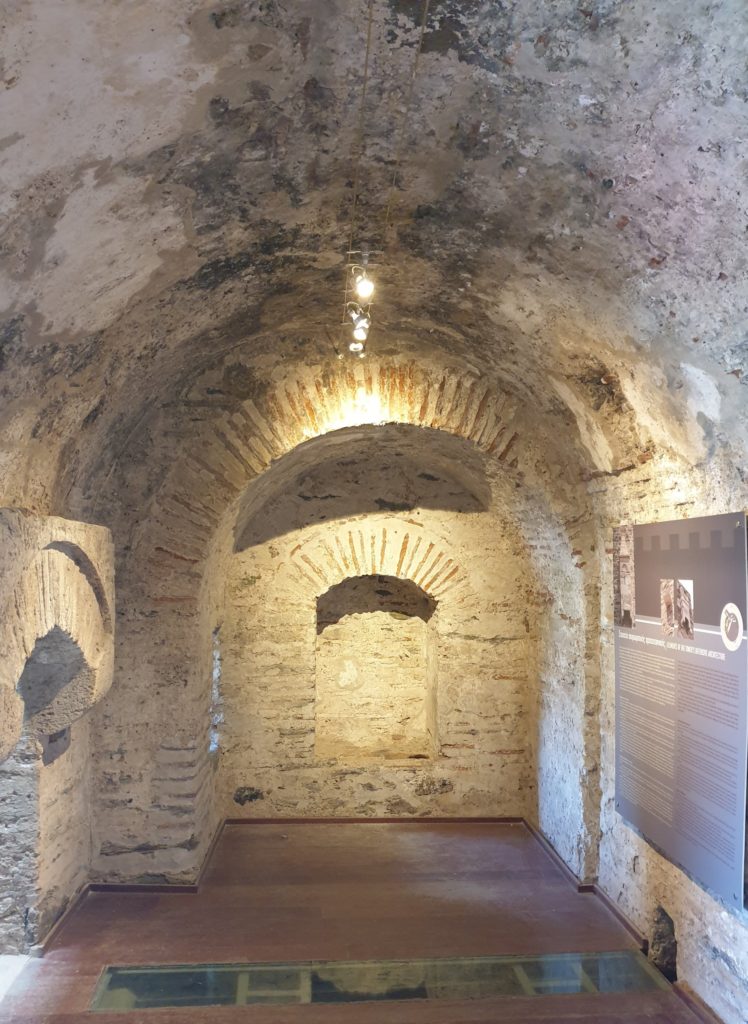
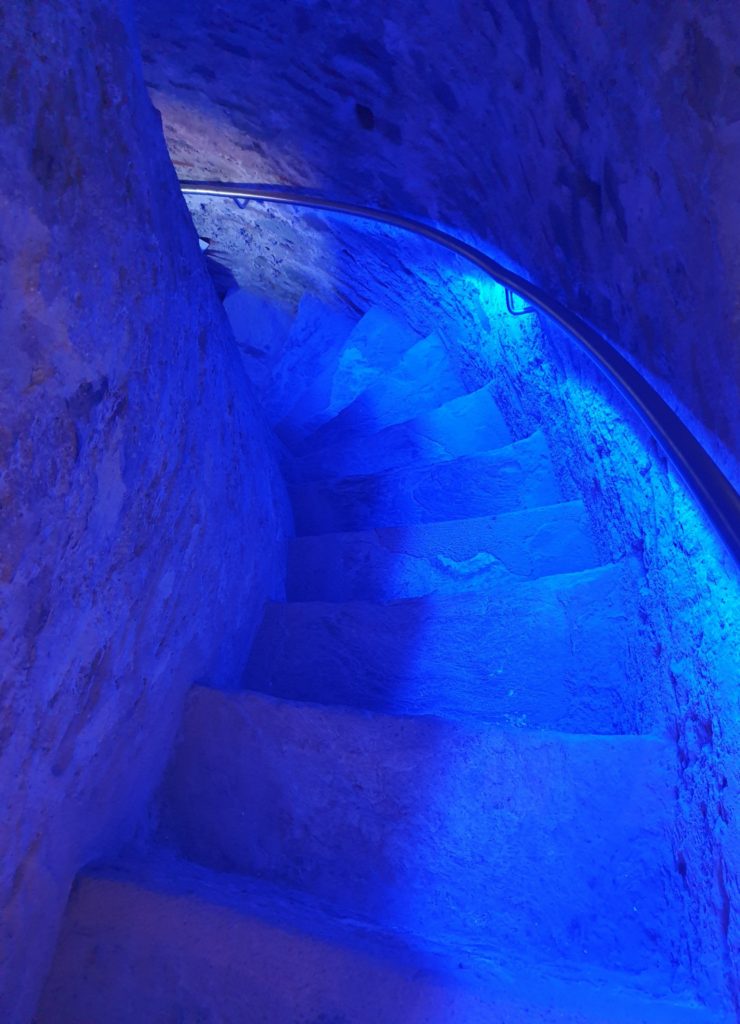
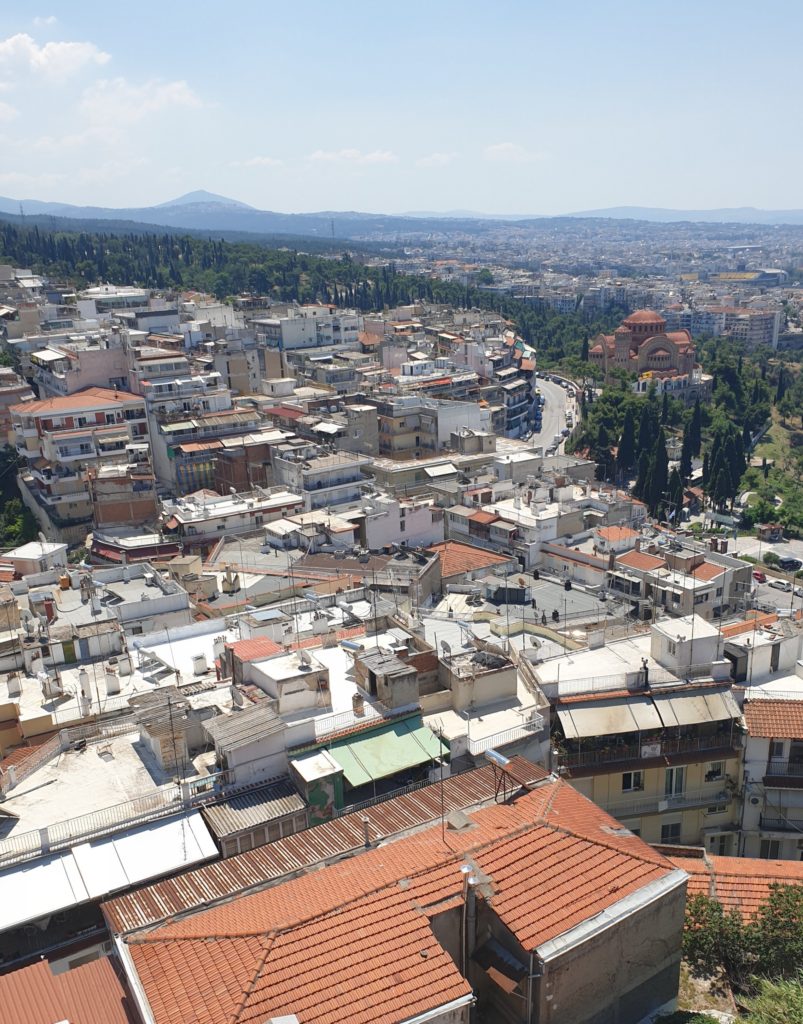
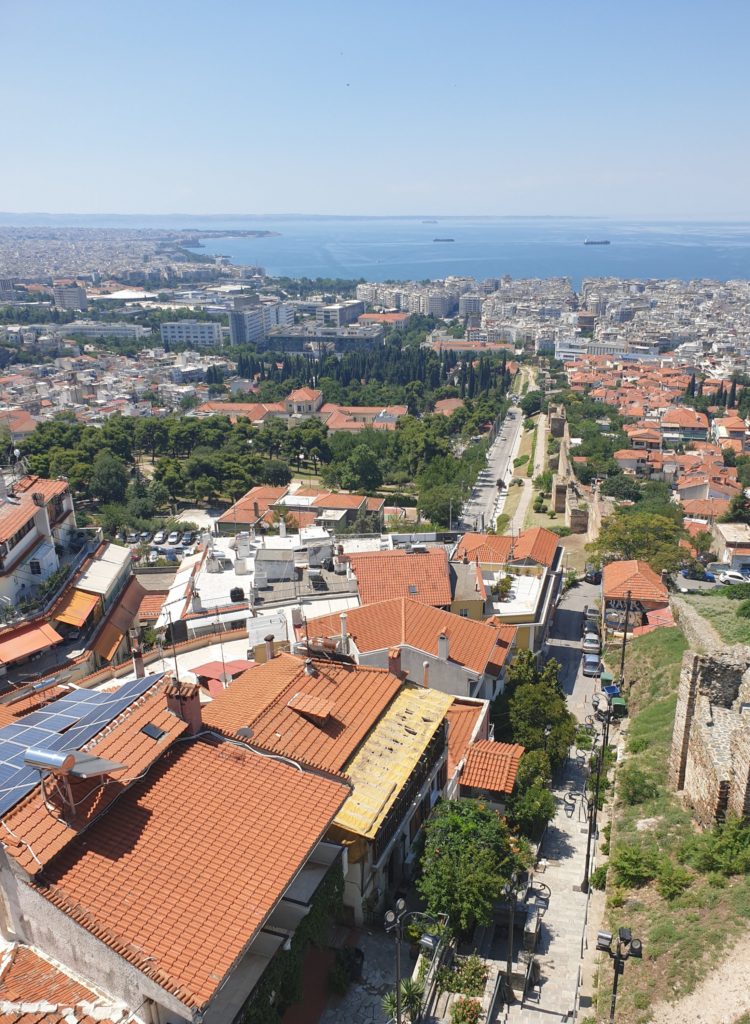
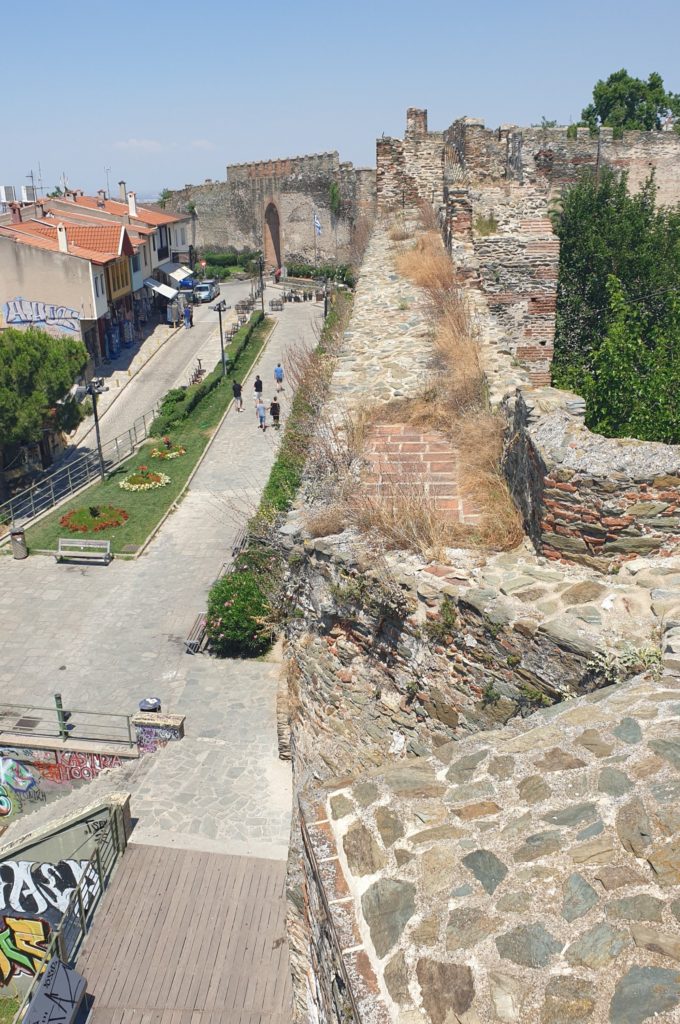
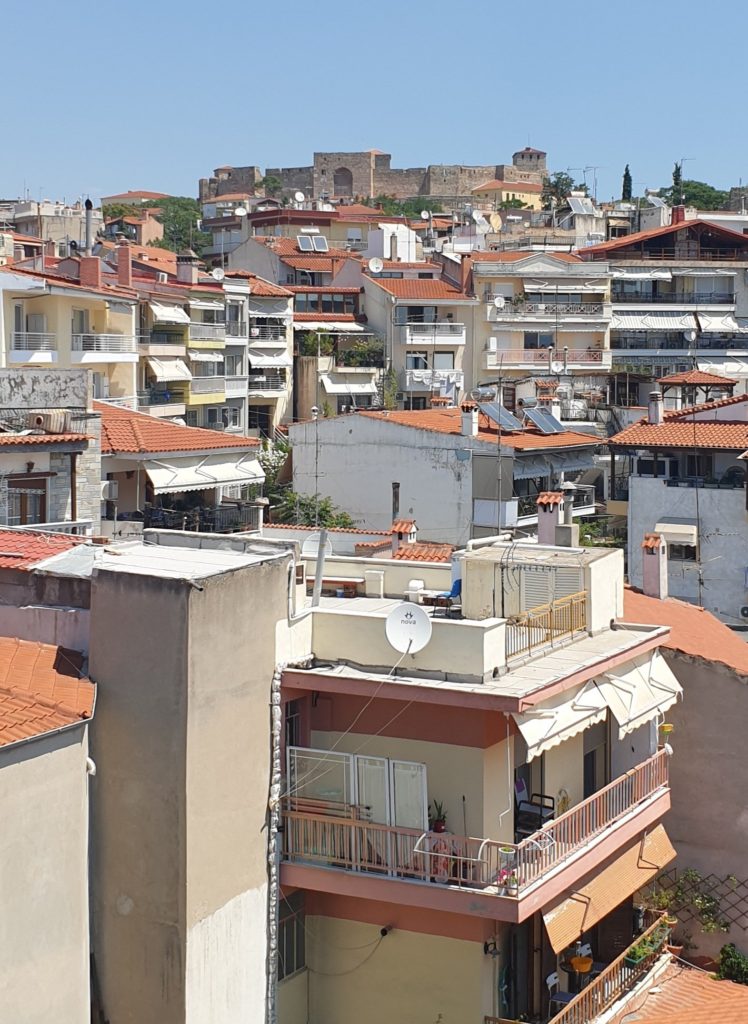
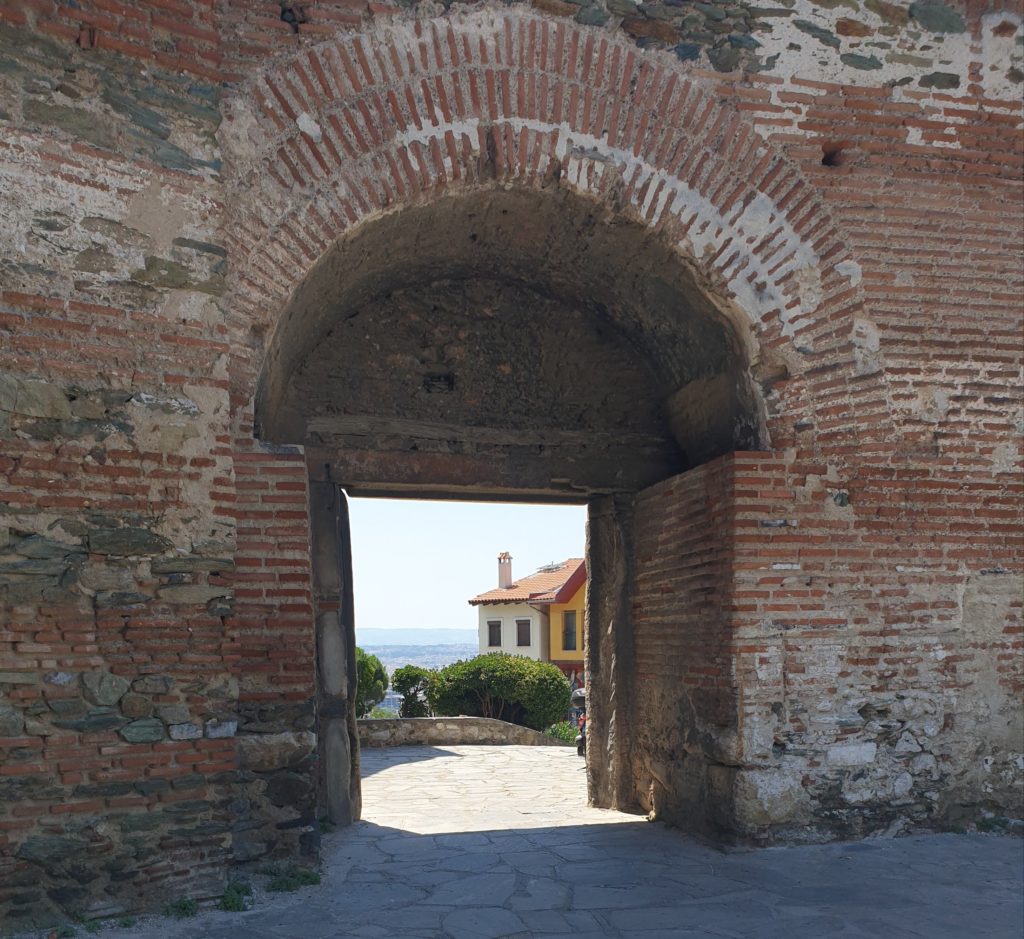
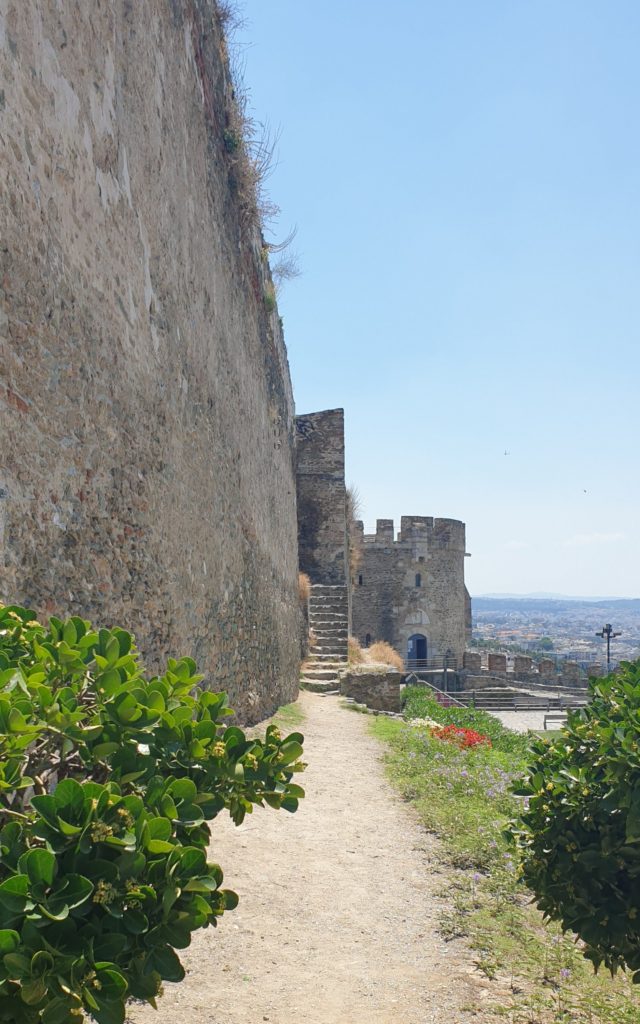
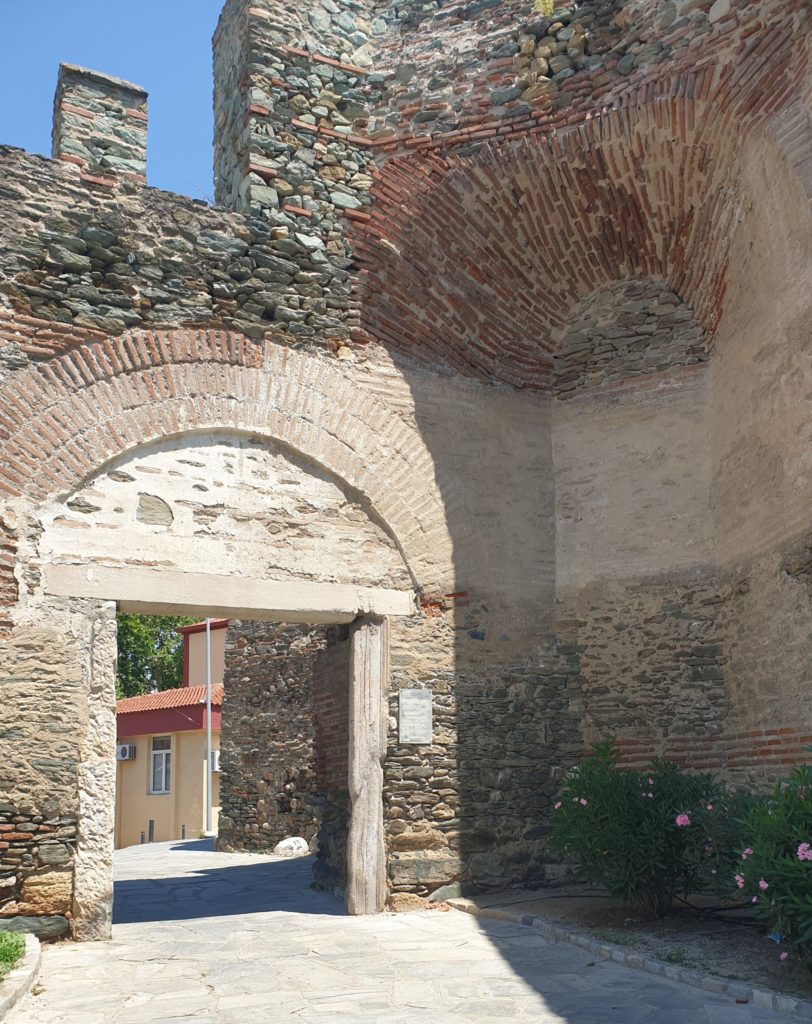
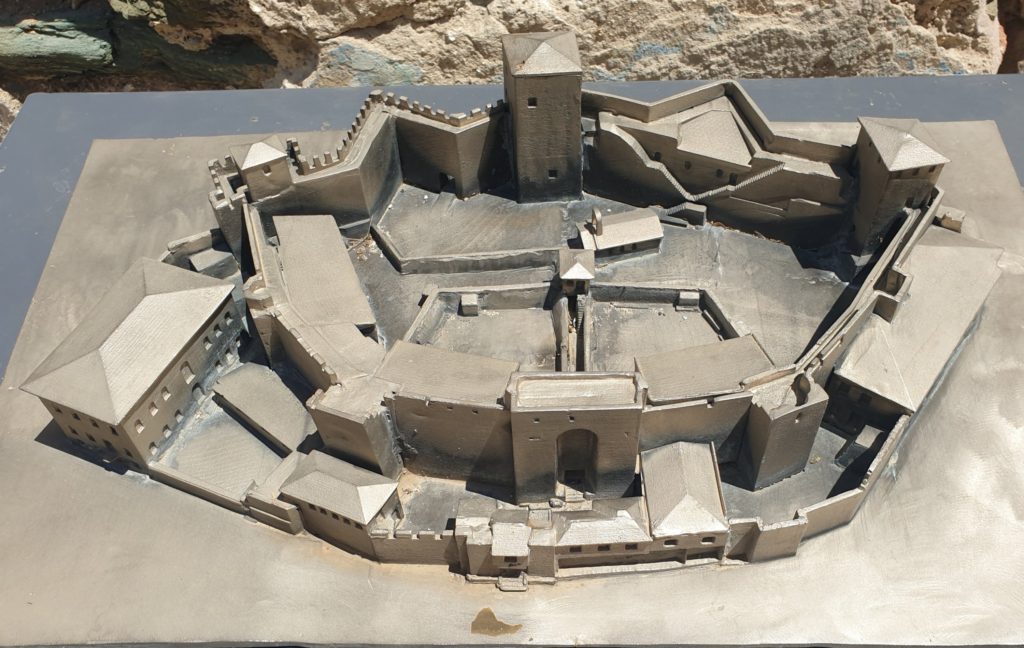
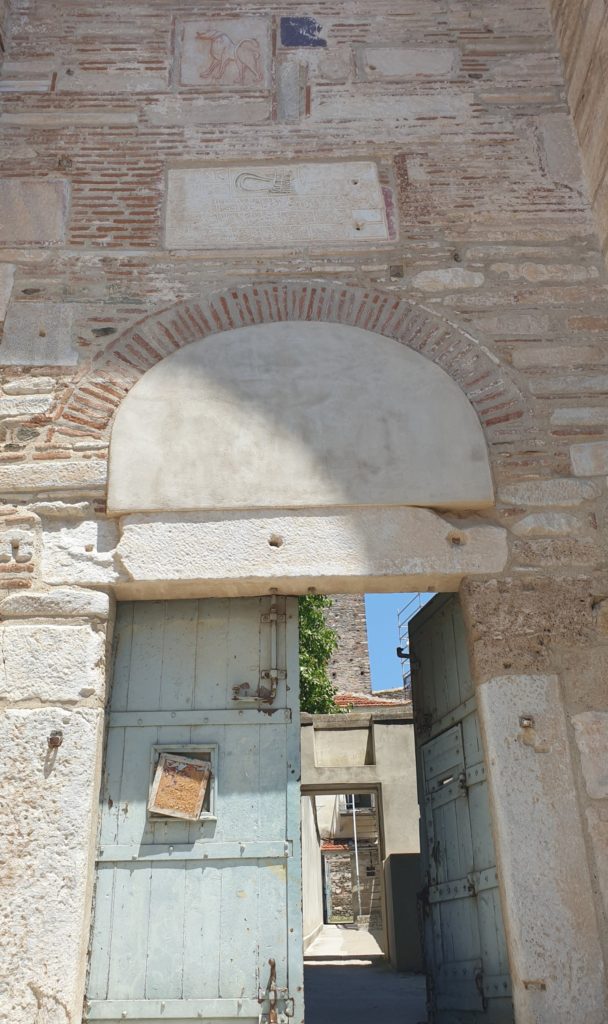
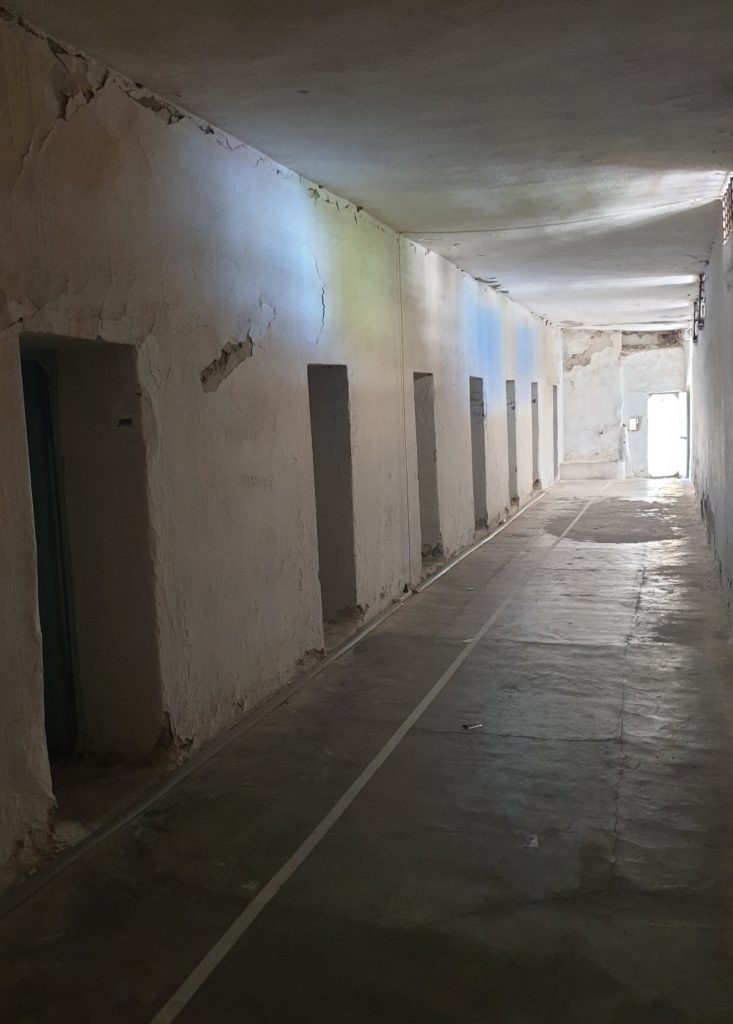
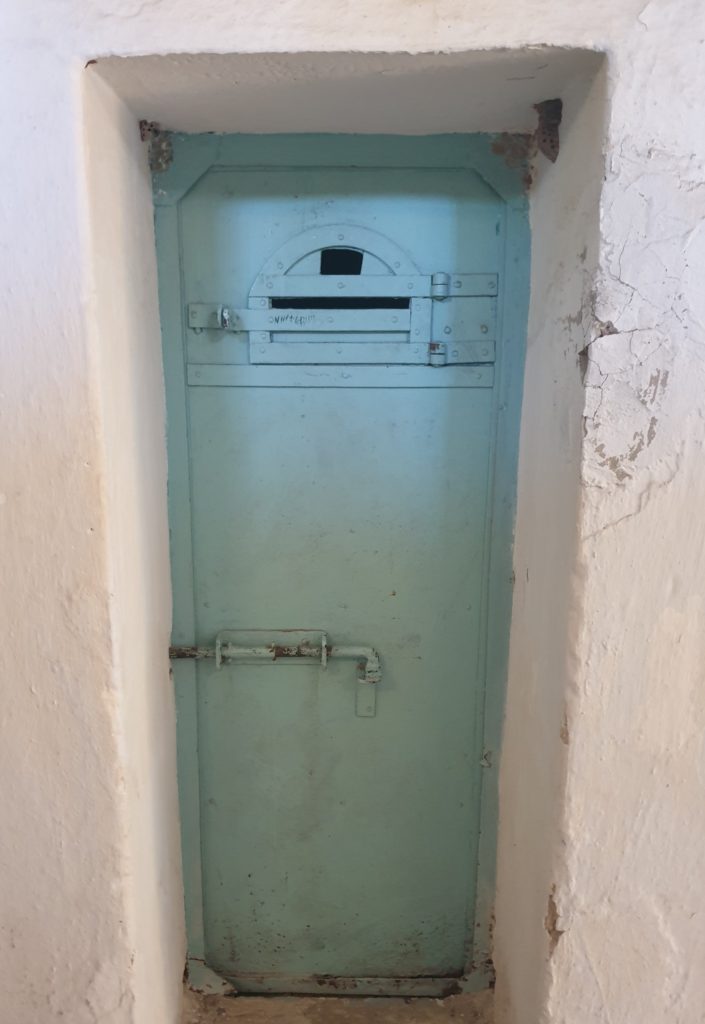
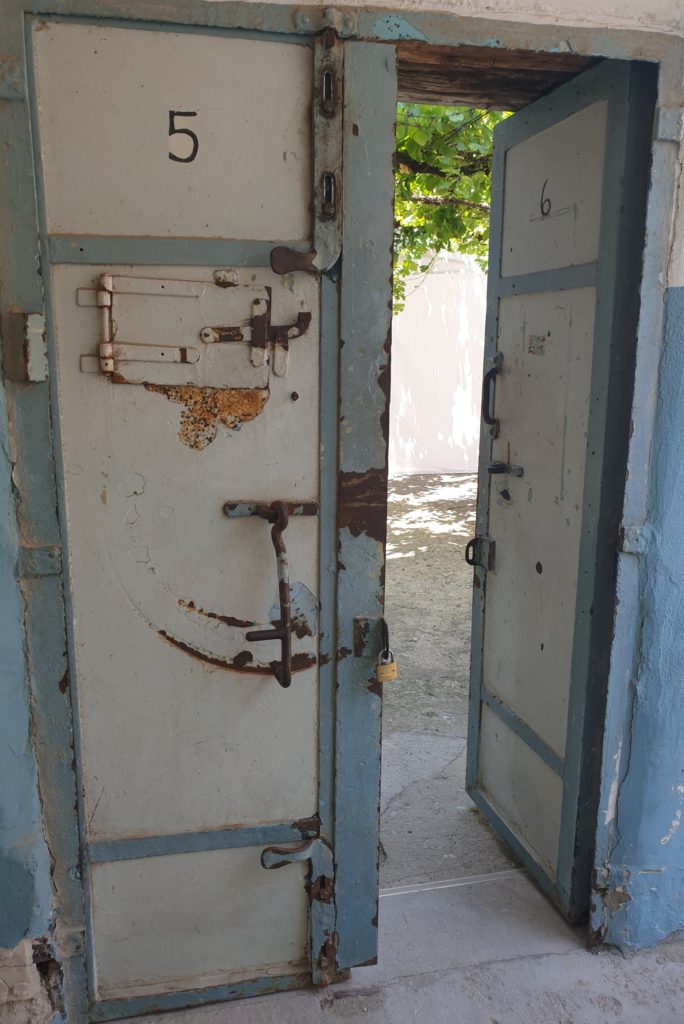
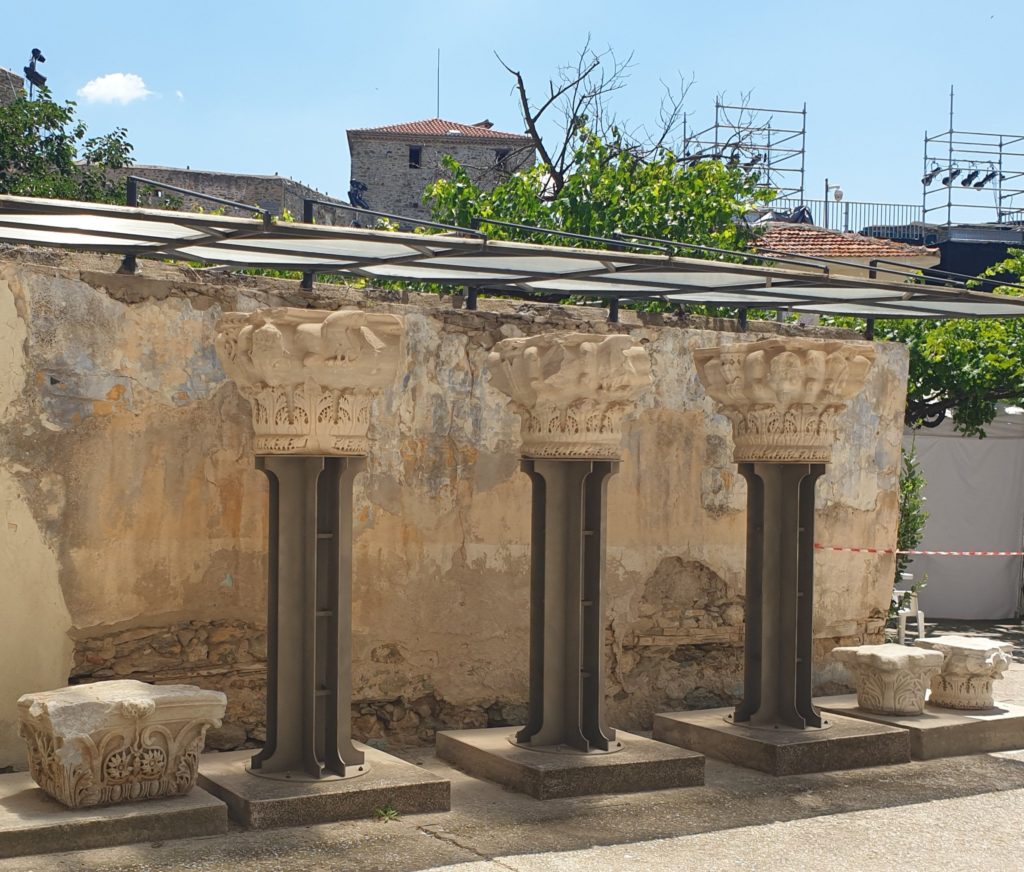
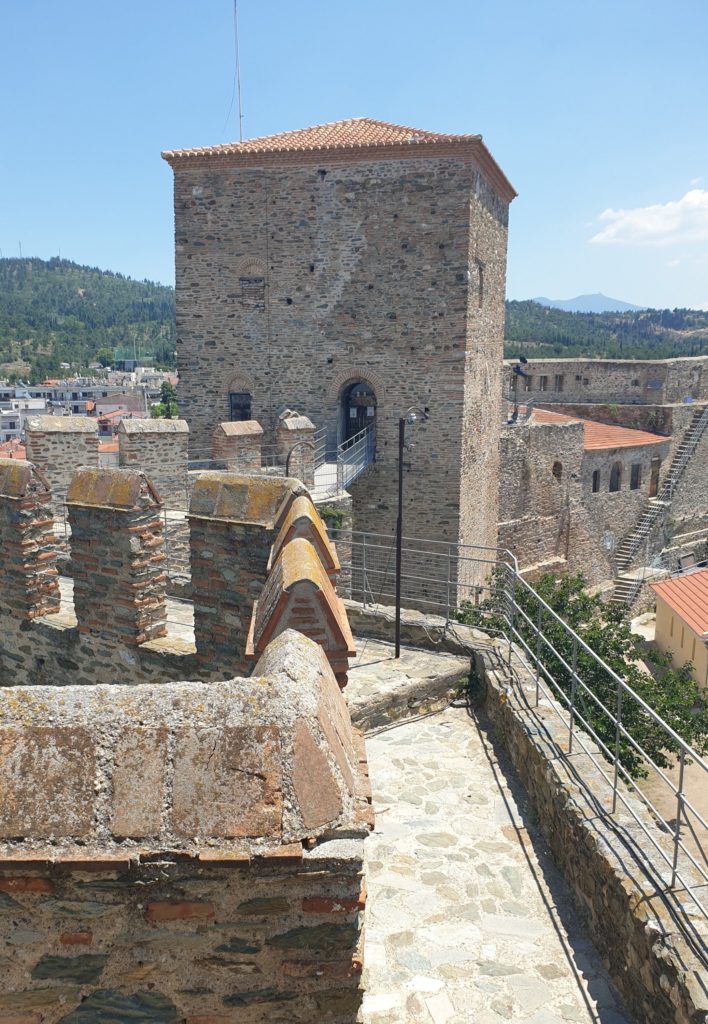
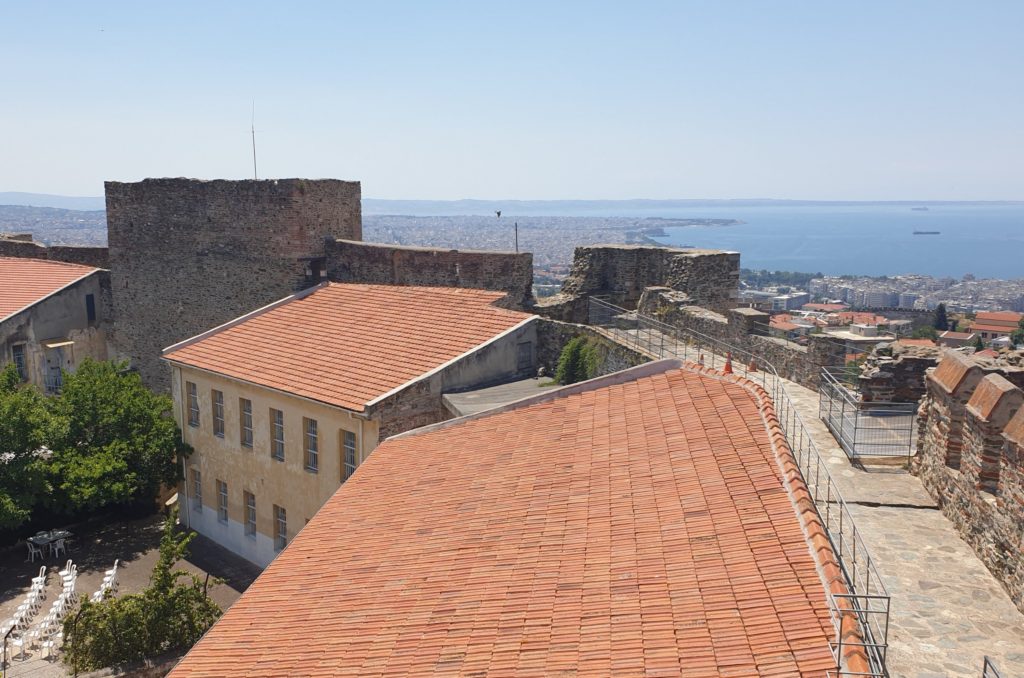
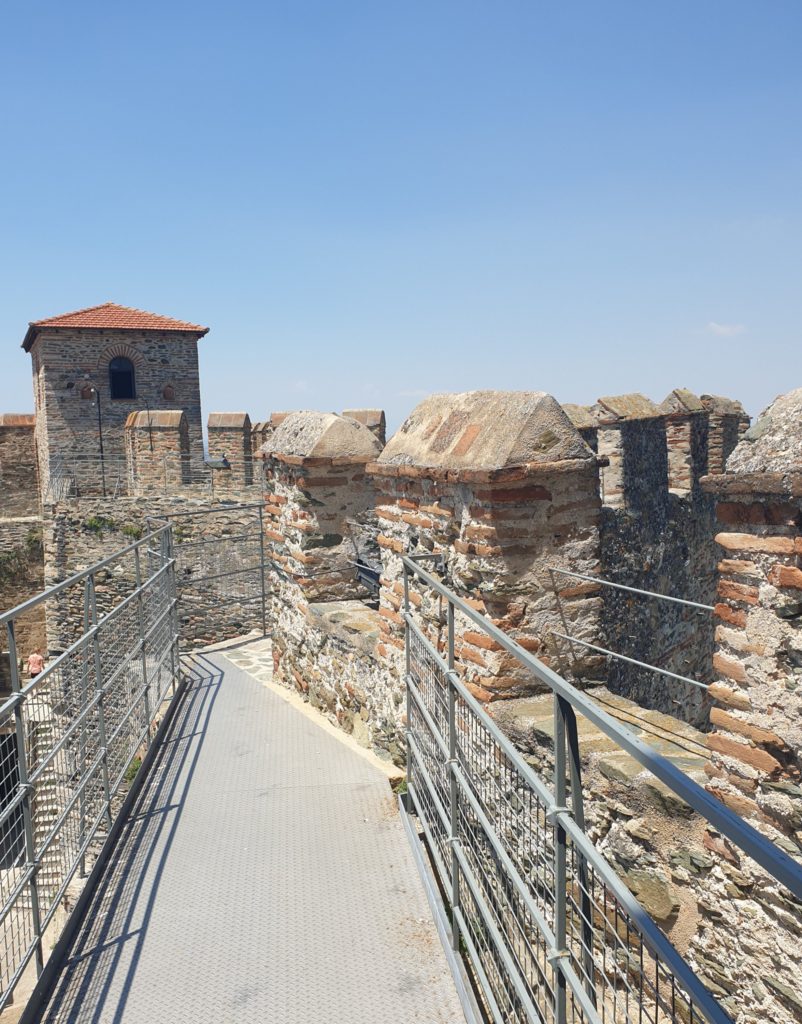
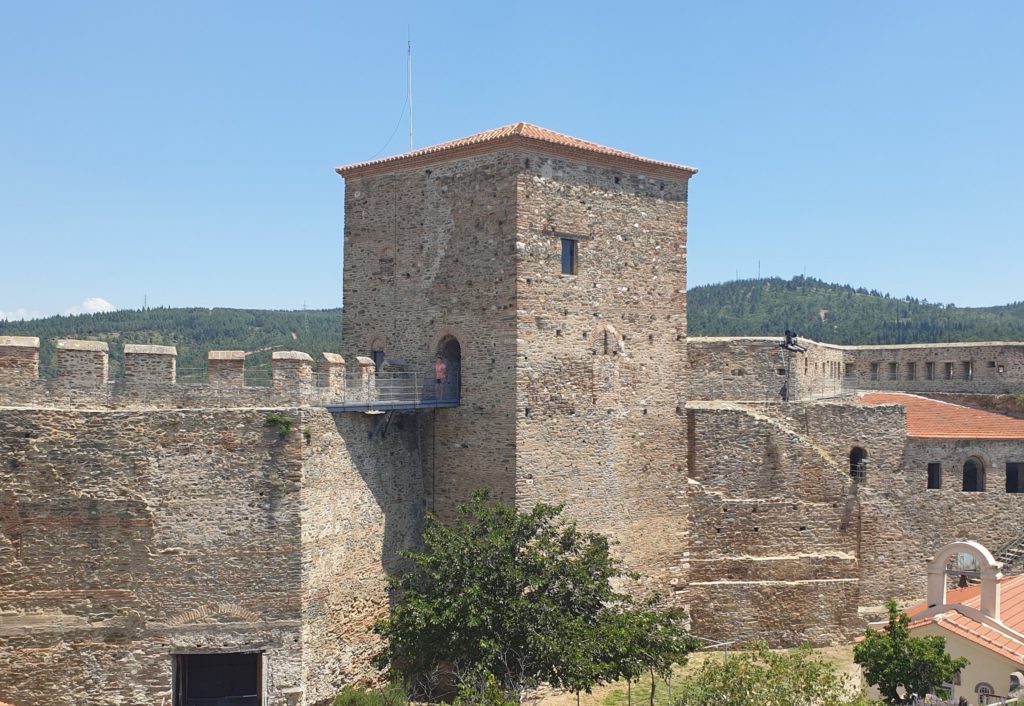
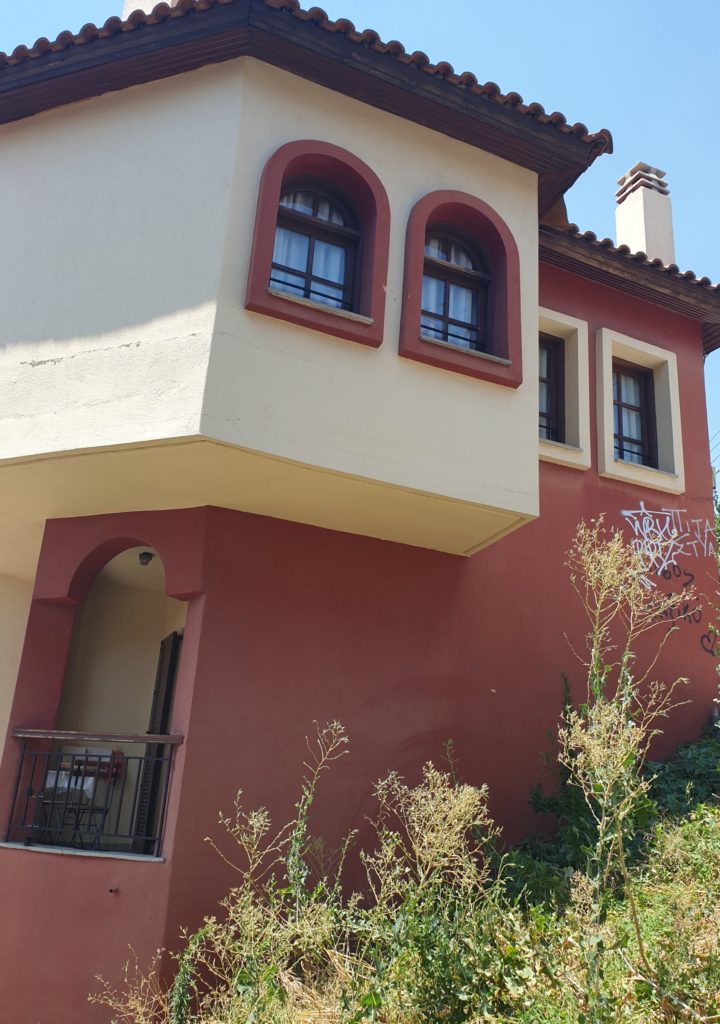
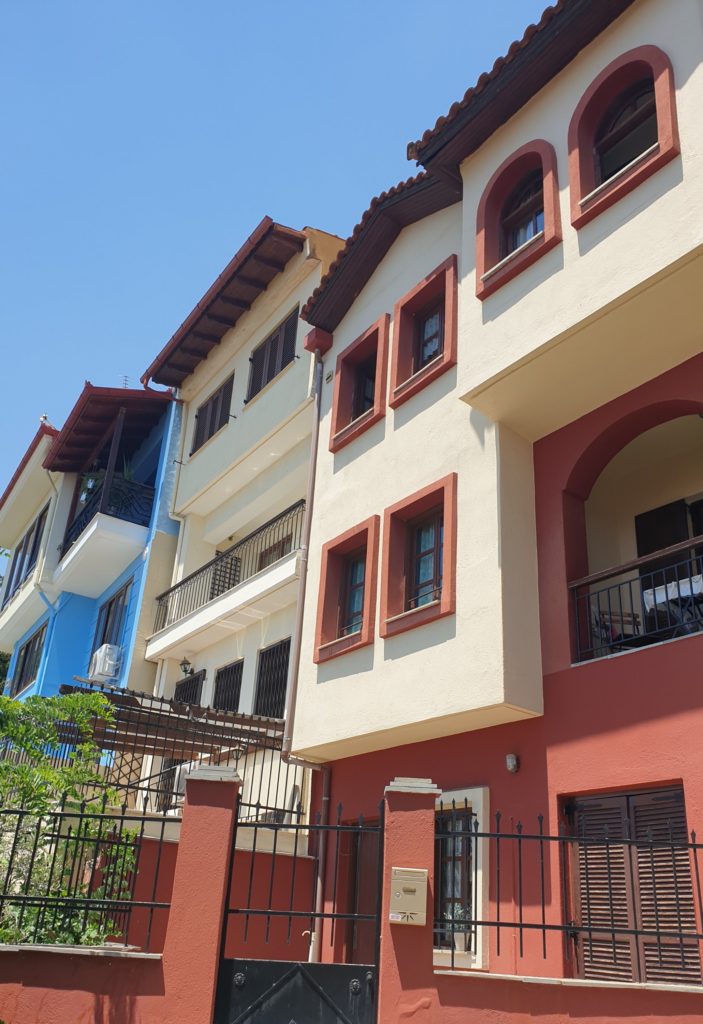
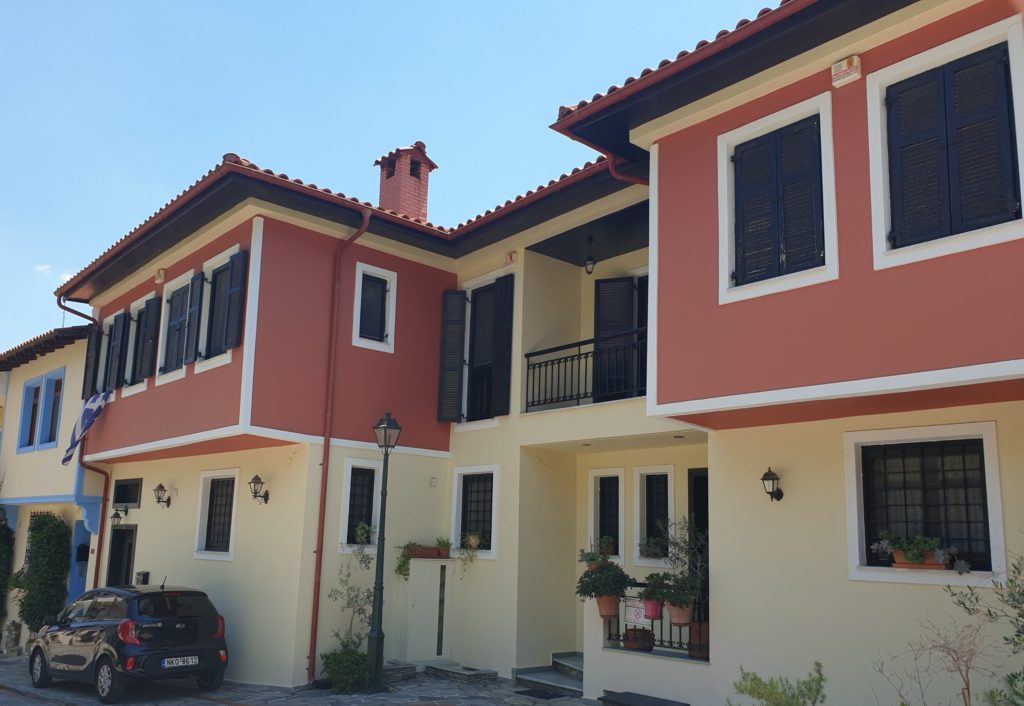
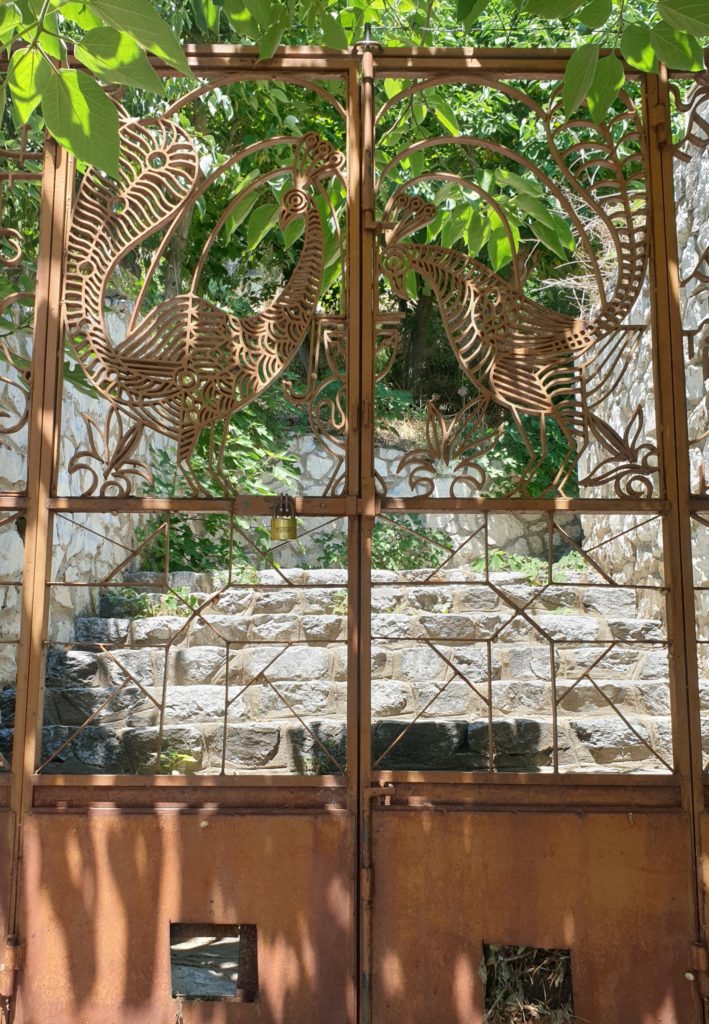



Thursday, June 30th 2022 at 9:45 pm |
Are there traditional houses of Greek design? They’re a lot like the houses I saw in Plovdev, Bulgaria….with the jutting second floor… can’t remember seeing them anywhere else
Thursday, June 30th 2022 at 9:56 pm |
Anna, I think they’re from the Ottoman era. I have seen them elsewhere in Greece but can’t remember where… probably somewhere in the north.